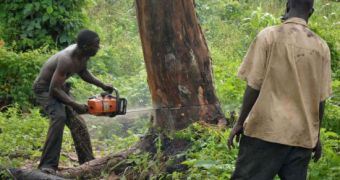A report recently issued by the World Wildlife Fund (WWF) says that, by the year 2030, the Greater Mekong region will have lost about 30% of its current forest cover.
This claim is based on data collected while analyzing deforestation patterns in this part of the world throughout the course of the past three decades.
Thus, it appears that within said time frame the Greater Mekong region which encompasses Cambodia, Laos, Myanmar, Thailand and Vietnam was stripped of about one third of its forests.
Mongabay quotes Peter Cutter, currently employed as landscape conservation manager with WWF-Greater Mekong, who commented on the findings listed in said report as follows:
“The Greater Mekong is at a crossroads. One path leads to further declines in biodiversity and livelihoods, but if natural resources are managed responsibly, this region can pursue a course that will secure a healthy and prosperous future for its people.”
The WWF now asks that local high officials figure out a way to better manage natural resources and make sure that logging activities do not harm Greater Mekong's natural ecosystems beyond repair.
What these conservationists want is that local governments slash annual deforestation rates by as much as 50%, and that more sustainable-managed portions of land be established.
According to the WWF, such measures would benefit not just natural ecosystems in the Greater Mekong, but also local economies.
“The green economy approach is the choice for a viable future in the Greater Mekong.”
“Regional leaders have already affirmed that healthy economic growth goes hand in hand with healthy and productive ecosystems, but fast and effective responses are needed now to avoid permanent environmental degradation,” Peter Cutter further explained.
The report also discusses how plans to dam the Mekong River will impact on local biodiversity and human communities, and urges that local governments reconsider their current development plans and opt for a more environmentally-friendly approach.

 14 DAY TRIAL //
14 DAY TRIAL //